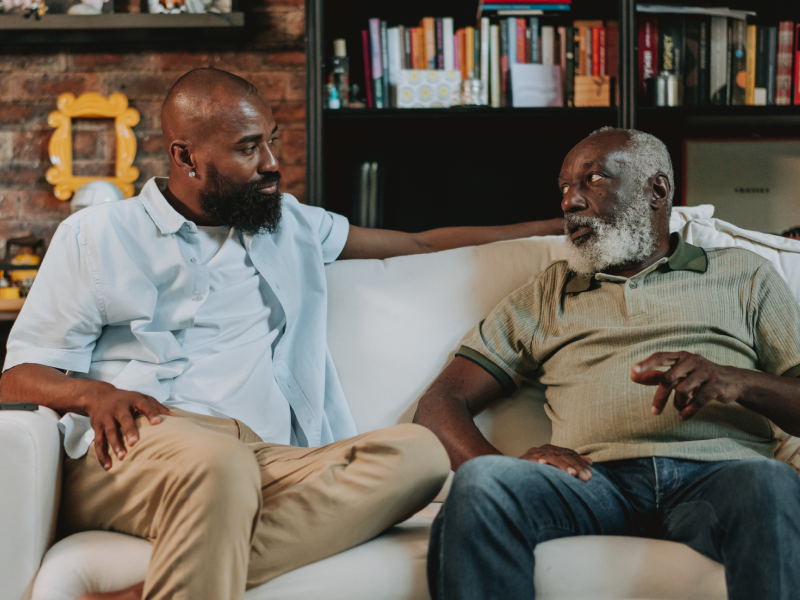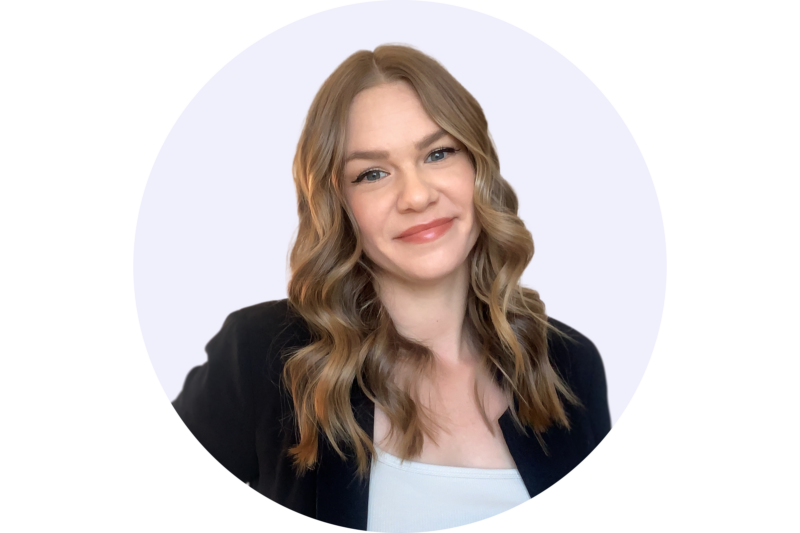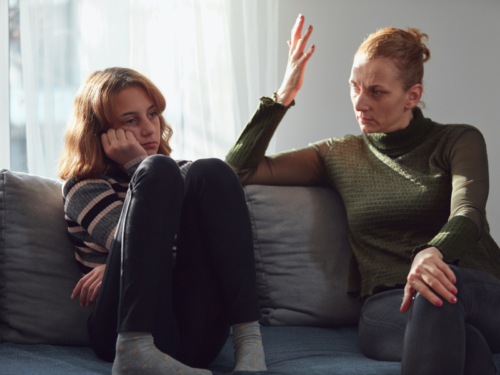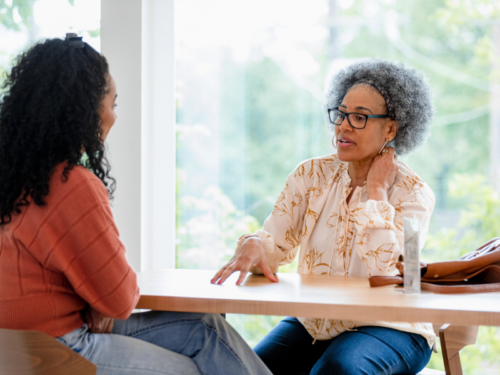
Table of Contents
Signs of Abusive Parents You Should Know

Written By: Sarah Fielding

Clinically Reviewed By: Sarah Lyter
October 15, 2024
6 min.
Parental abuse can come in many forms — physical, emotional, sexual, financial, and more — and the trauma can impact a person throughout their lifetime.
Learn more about our Clinical Review Process
Table of Contents
There is absolutely no excuse for abusive parenting by any guardian or caregiver. Abusive parents can cause emotional, psychological, and physical harm — to name only a few. These acts can cause a range of painful sensations, leading to childhood trauma that can permeate throughout a person’s lifetime.
People who have abusive parents can face a wide range of medical and mental health conditions and symptoms, including difficulty sleeping or concentrating, low self-esteem, anxiety, developmental delays, and more, according to Charlie Health Clinical Supervisor Tracye Freeman Valentine, LPC-MHSP and Senior Primary Therapist Sarah Lyter, LCPC, MA. Below, we explore common kinds of abusive parenting, the impact of this trauma, and how to heal from it.

Healing from parental abuse is possible
Charlie Health offers trauma-informed virtual care for survivors.
7 signs of abusive parenting
Abusive behavior can come in a wide range of forms and severities. Before we dive into what abuse looks like, it’s worth clearly stating one thing. You do not need to reach some theoretical threshold for incidents to be abusive. If something feels like abuse, then it should be treated as such. According to Lyter, Freeman Valentine, and Charlie Health Group Facilitator Clary Figueroa, MSW, here are some of the most common forms of abuse and how to recognize them in a parent-child relationship.
1. Physical abuse
This form is any instance of using physical force to harm or intimidate. A child might experience physical abuse as a form of punishment or when a parent is angry. Signs of physical abuse include bruises, burns, fractures, and any injury that doesn’t include a clear explanation. In each case, it’s a clear display of physical harm or violence.
2. Emotional and psychological abuse
The act itself is more obvious for emotional and psychological abuse. An emotionally abusive parent might shout at, manipulate, humiliate, or criticize their child. Their child might be the subject of harmful remarks or “jokes” that can reduce their self-worth. This can also be called verbal abuse when focused on belittling the child. A child might isolate themselves, struggle with emotional development, and have a nervous demeanor.
3. Sexual abuse
Critically, sexual abuse doesn’t have to involve any contact. It can include making sexual comments, observing them doing certain acts, and exposing them to pornography. It can also be any sort of touching or sexual act. Signs a child might be experiencing sexual abuse include having age-inappropriate knowledge of sexual acts or behavior, infections in the genitals, acting secretive, and struggling to sit or walk.
4. Neglect
Neglect is child maltreatment, occurring because a parent isn’t providing their child with the food, clothing, shelter, medical care, education, or supervision they require. It results in negative consequences for both their well-being and development. Signs of child neglect can be tangible, such as missing basic needs. This doesn’t necessarily mean that the family as a whole is lacking, but that the child is missing needs.

5. Cultural and spiritual abuse
A parent might use their culture, spiritual inclinations, or religion to cause abuse. Typically, this will be through manipulation or control, such as telling their kid that their sexual orientation is a sin or that they’ll face consequences for doing one of a myriad of things.
6. Digital abuse
A parent, especially one who doesn’t live with the child, could use digital means to abuse their kid. It could be through online stalking, harassment, or control, such as commenting nasty things on their pictures or berating them following a separation agreement.
7. Financial abuse
Financial abuse of a child could be forcing them to work without pay, taking their earnings, or using money as a way to control them.
Steps a young person experiencing abusive parents can take
If you are facing abuse from a parent, please know that you are not to blame for anything you are experiencing, and there are people who want to help you. One of the best things you can do is speak to a trusted adult. “If someone is facing abuse from their parents, I would recommend them to speak with a mandated reporter,” says Figueroa. “Someone like a teacher, therapist, counselor, doctor, medical staff because by law they will have to report this.” This person can help you create a safety plan and get professional help from authorities or a mental health professional.
If you don’t know who to turn to, you can contact the Childhelp National Child Abuse Hotline by texting or calling 1-800-422-4453 any time or day. The organization’s site also has further information about getting help.
How to help a child experiencing abuse
It can be challenging to know exactly how to act from the outside that is in the child’s best interest. A peer or trusted adult can always provide a space to listen, support, validate, and advocate for the individual.
Figueroa states that, in some instances, an outside person might approach the parent directly. “Let the parent know what they are doing is abusive,” she says. If the parent is open, maybe recommend they see a therapist or take parenting classes.” This route isn’t always feasible, and Lyter cautions that outside individuals should be mindful of their own safety and the possibility of retaliation against the child.
The impact of childhood abuse on mental health and adulthood
So much of who we are is a result of our experiences, the good, the bad, and the horrible. A person who experiences childhood abuse can feel the impact well into adulthood. As Figueroa puts it, “The child may grow up with trauma and have a lot of pain in their heart.” She adds that, even in adulthood, some parents might try to maintain control over their kid and treat them like an adult child, put them down, or criticize their life choices.
Someone who experienced child abuse can “struggle with impulse control, decision-making skills, or engage in substance use or sexualized behaviors,” says Freeman Valentine. “The adult may experience problems with interpersonal skills with others and employment issues on the job, depression, anxiety, trauma, low self-esteem, eating disorders, cognitive impairment, and insecure attachment styles.” They might also struggle with emotional regulation.
They can also face a greater risk of entering future abusive relationships, further perpetuating the trauma, adds Lyter. On the other hand, people who have experienced child abuse are also at risk for perpetuating this behavior in adulthood. “Physical and verbal aggression are some traits of an adult who has been a victim of childhood abuse,” says Freeman Valentine. “It is important to remember that most victims of abuse do not become abusers; however, they have experienced factors that increase their likelihood of becoming an abuser.”

How Charlie Health can help
If you or a loved one are struggling with childhood trauma, Charlie Health is here to help. Charlie Health’s virtual Intensive Outpatient Program (IOP) provides more than once-weekly mental health treatment for young people and families dealing with serious mental health conditions, including trauma. Our expert clinicians incorporate evidence-based therapies into individual counseling, family therapy, and group sessions. With this kind of holistic treatment, managing trauma and achieving emotional regulation is possible. Fill out the form below or give us a call to start healing today.
References




